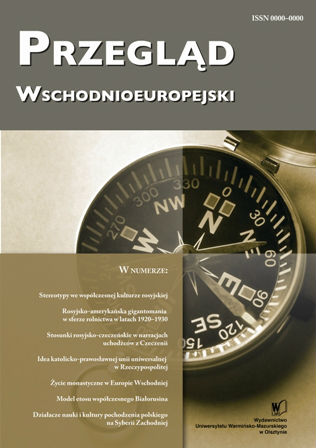Уход за младенцами: практики, тексты и культурные конфликты
Baby care: practices, texts and cultural conflicts
Author(s): Alexandra PletnevaSubject(s): Theoretical Linguistics, Applied Linguistics
Published by: Wydawnictwo Uniwersytetu Warmińsko-Mazurskiego w Olsztynie
Keywords: common culture; social disciplining; cultural identity; social prestige; everyday practices; ethnography; social stratification; gender; history of medicine; household medicine
Summary/Abstract: To create the social history of Russia and the history of everyday life, one needs a description of local everyday practices. This article focuses on the everyday practices associated with the birth of a baby and care for it. The author proceeds from the fact that the 18th and 19th centuries in Russia saw the coexistence of two cultures and two household traditions – the culture of the educated classes and the peasant culture. At the level of everyday practices, they made a certain influence on each other. On the one hand, ethnographic materials were used as sources, and on the other hand – popular medical literature of the 19th century. The article analyzes the practices themselves and the mechanisms of their influence on each other, while it appears that the effect of the practices of educated social groups on people’s life was a conscious Kulturtraeger activity. The influence of peasant household traditions on the lifestyle of educated classes was carried out primarily through direct impact. The ubiquity of nurses who belonged to a different social group than the child’s parents, led to the fact that, despite the parents’ resistance, peasant childcare practices (baby-rocking, pacifier, sleeping together, etc.) were used quite actively.
Journal: Przegląd Wschodnioeuropejski
- Issue Year: VIII/2017
- Issue No: 1
- Page Range: 249-269
- Page Count: 20
- Language: Russian

